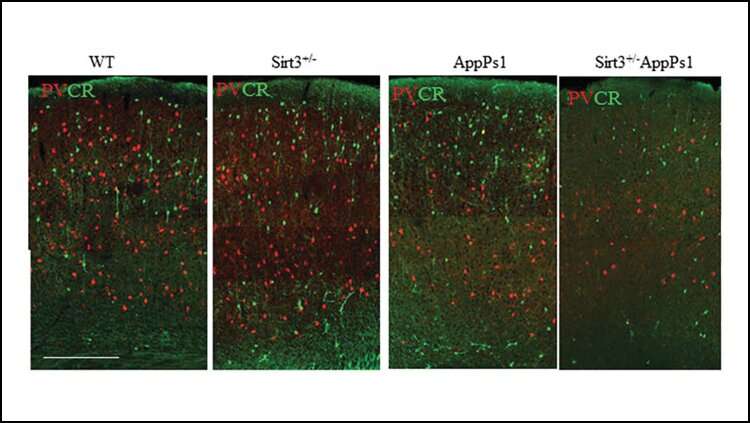Eating more ketones may fight against Alzheimer's disease

A ketone-supplemented diet may protect neurons from death during the progression of Alzheimer's disease, according to research in mice recently published in JNeurosci.
Early in the development of Alzheimer's disease, the brain becomes over excited, potentially through the loss of inhibitory, or GABAergic, interneurons that keep other neurons from signaling too much. Because interneurons require more energy compared to other neurons, they may be more susceptible to dying when they encounter the Alzheimer's disease protein amyloid beta. Amyloid beta has been shown to damage mitochondria—the metabolic engine for cells—by interfering with SIRT3, a protein that preserves mitochondrial functions and protects neurons.
Cheng et al. genetically reduced levels of SIRT3 in mouse models of Alzheimer's disease. Mice with low levels of SIRT3 experienced a much higher mortality rate, more violent seizures, and increased interneuron death compared to the mice from the standard Alzheimer's disease model and control mice. However, the mice with reduced levels of SIRT3 experienced fewer seizures and were less likely to die when they ate a diet rich in ketones, a specific type of fatty acid. The diet also increased levels of SIRT3 in the mice.
Increasing SIRT3 levels via ketone consumption may be a way to protect interneurons and delay the progression of Alzheimer's disease.
More information: SIRT3 Haploinsufficiency Aggravates Loss of GABAergic Interneurons and Neuronal Network Hyperexcitability in an Alzheimer's Disease Model, JNeurosci (2019). DOI: 10.1523/JNEUROSCI.1446-19.2019
















